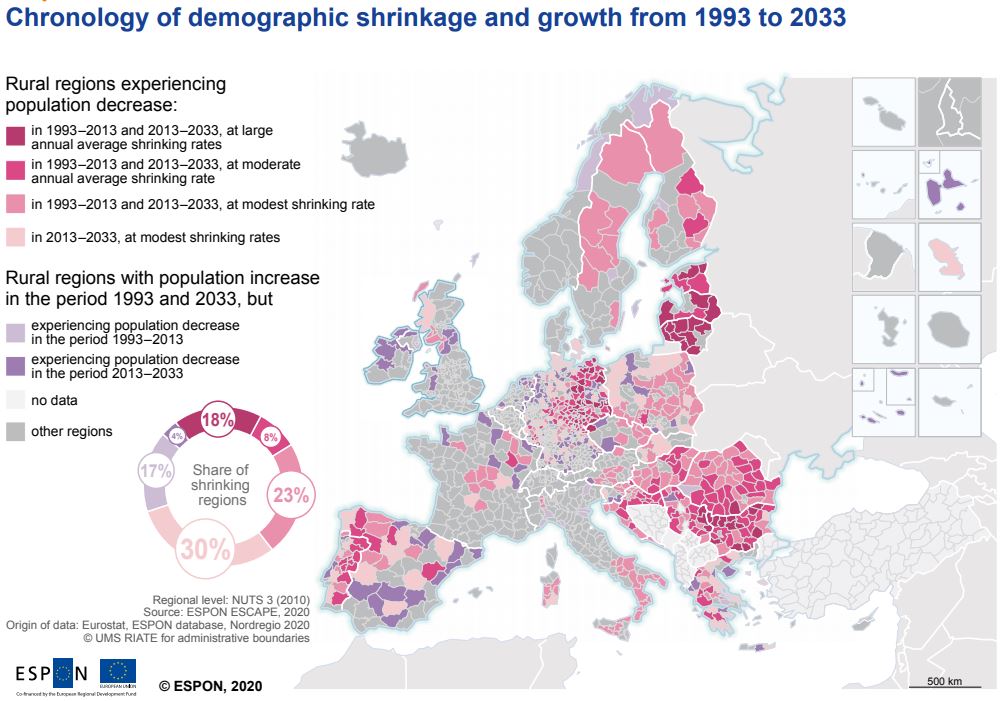ESPON (European Spatial Planning Observation Network) has recently published a policy paper on territorial evidence and policy advice for the prosperous future of rural areas, contributing to the Long-Term Vision for Rural Areas (LTVRA).
This policy paper aims to support the discussions surrounding the future of rural areas, connecting the Territorial Agenda 2030 priorities with policy responses for the Vision. ESPON provides the territorial evidence (data collected) and knowledge (long-term trends identified) to further support designing a prosperous future for these areas. The paper includes (i) a baseline scenario for rural areas development focused on the analysis and mapping of rural demographic diversity and rural shrinkage phenomenon; and (ii) recommendations for place-sensitive policy actions.

The paper highlights the need of ensuring the distinct territorial dimension on the path for harmonious policy intervention. ESPON further advises on adequate policy measures structured in six cross-cutting domains:
- shrinkage and demographic decline in rural regions;
- quality of life in rural regions;
- marginalisation and limited access to services of general interest (SGIs);
- economies affected directly and indirectly by natural hazards;
- biodiversity and ecosystem services in mitigating climate change effects;
- transitioning economies and new technological transformations.
The key recommendations ESPON puts forward are:
- Solid and mature enhancement of living standards and investments in building social trust.
- Cooperation and coordination between places and levels of governments.
- Promotion of synergies under cohesion, agricultural and rural development policies.
- Use of lessons to be learned from the remaining existent functional rural networks and partnerships.
- Bring policies, citizens and territories closer through local politicians’ dialogue and knowledge, and going beyond just predominantly theoretical exercises to match local needs with specific national strategies.
Some of these recommendations can be found also in the SHERPA Position Paper on the Long-Term Vision for Rural Areas, published in February 2021.
More specifically:
- Empowering local actors and communities. Local actors and communities should be recognised as being instrumental to the formulation, design and implementation of policies for rural areas. Participation and actions should be facilitated through flexible funding schemes that are relevant to the characteristics of different areas.
- Enhancing multi-level and territorial governance. A well-designed and facilitated combination of government across levels (local to European) and policy themes, with representatives of private and third sectors, focused on place-based and territorial approaches, would provide a powerful approach to co-constructing relevant and effective future policies for rural areas.
The Long-Term Vision for Rural Areas should address the specific characteristics of rural areas through enabling the active participation of a wide range of stakeholders in the design of adaptive, place-based and inclusive policies in ways that respect equalities, innovation and environmental sustainability.
SHERPA Position Papert on the Long-Term Vision for Rural Areas
Read the SHERPA’s Position Paper contributing to the Long-Term Vision for Rural Areas.